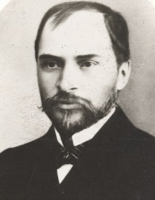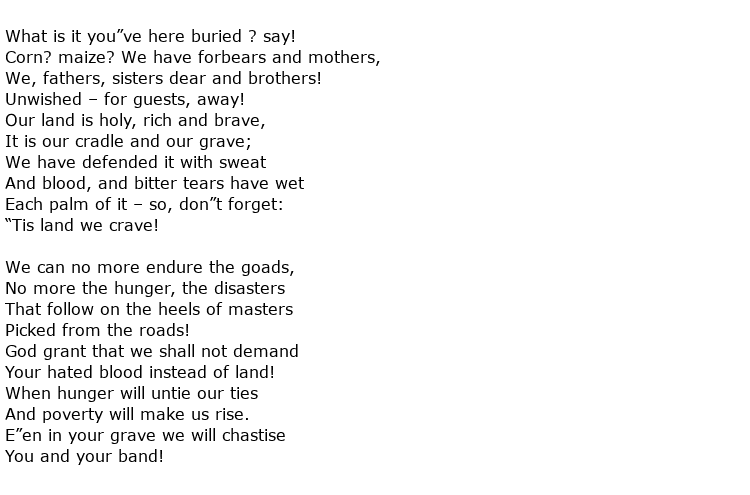 George Cosbuc was a Romanian poet and translator who also worked as a teacher and journalist at different times. His poetry reflected his rural upbringing, on the one hand describing a tranquil, joyful lifestyle while on the other emphasising what a hard life it could be.
George Cosbuc was a Romanian poet and translator who also worked as a teacher and journalist at different times. His poetry reflected his rural upbringing, on the one hand describing a tranquil, joyful lifestyle while on the other emphasising what a hard life it could be.
He was born on the 20th September 1866 in a small Transylvanian village named Hordou which was, at that time, under Hungarian administration. Since 1925 though it has been known, coincidentally, as Cosbuc. He was the son of a Greek Catholic priest who encouraged him to excel at school. He did so well that he was chosen to attend advanced courses at a higher learning academy in the nearby town of Nasaud. His scholarly demeanour impressed teachers so much that George himself was co-opted onto the teaching staff while he was still a student.
Although his father probably saw a career for his son as a clergyman, Cosbuc had ambitions in the literary field, joining a society called Virtus Romana Rediviva. This club had a yearly almanac which was an ideal outlet for his first published poetry, the first efforts being seen in 1884. That same year, while studying at the University of Cluj, his work as a writer and translator of traditional folk tales brought him to the attention of the local newspaper and he was editor in chief of the Tribuna within three years.
His fame as a writer spread rapidly and was enhanced with the publication of Zamfira”s Wedding which critics soon began to call a literary masterpiece. It was a logical move that saw him transfer to the capital city of Bucharest which was very much the centre of Romanian culture. Much of his work appeared in periodicals such as Convorbiri Literare and he soon began a collaboration with former teachers such as himself on the production of a text book called the Romanian Book of Reading.
Up to the early 1890’s Cosbuc’s work had mostly been of a lyrical nature, an example being his very popular 1893 collection of poems called Ballads and Pastorals. But then, as the political landscape began to change, his work developed a harder edge, as evidenced by his hard-hitting poem We Want Land. It was a graphic swipe at those who would keep the ordinary people in poverty, under the political thumbs of their masters, new or old. Here are the final two verses of this poem:

In 1896 he turned his talents to a major translation work, that of Virgil“s classic piece, the Aeneid. Over the next few years he translated many other pieces including the famous Divine Comedy by Dante Aligheri. He added the work of German writers such as Friedrich Schiller to his growing catalogue of translations and was given the epithet “outstanding member” by the Romanian Academy in 1898.
Not surprisingly, in later years, propagandists in the Communist Party latched on to Cosbuc’s work, holding it up as a great example of

although, as an intellectual, he could never be truly acknowledged by Marxist-Leninists. He continued to write until his son was killed in a road accident in 1915, an event that affected him so deeply that he withdrew from literary life.
George Cosbuc died in Bucharest on the 9th May 1918, aged 51.

